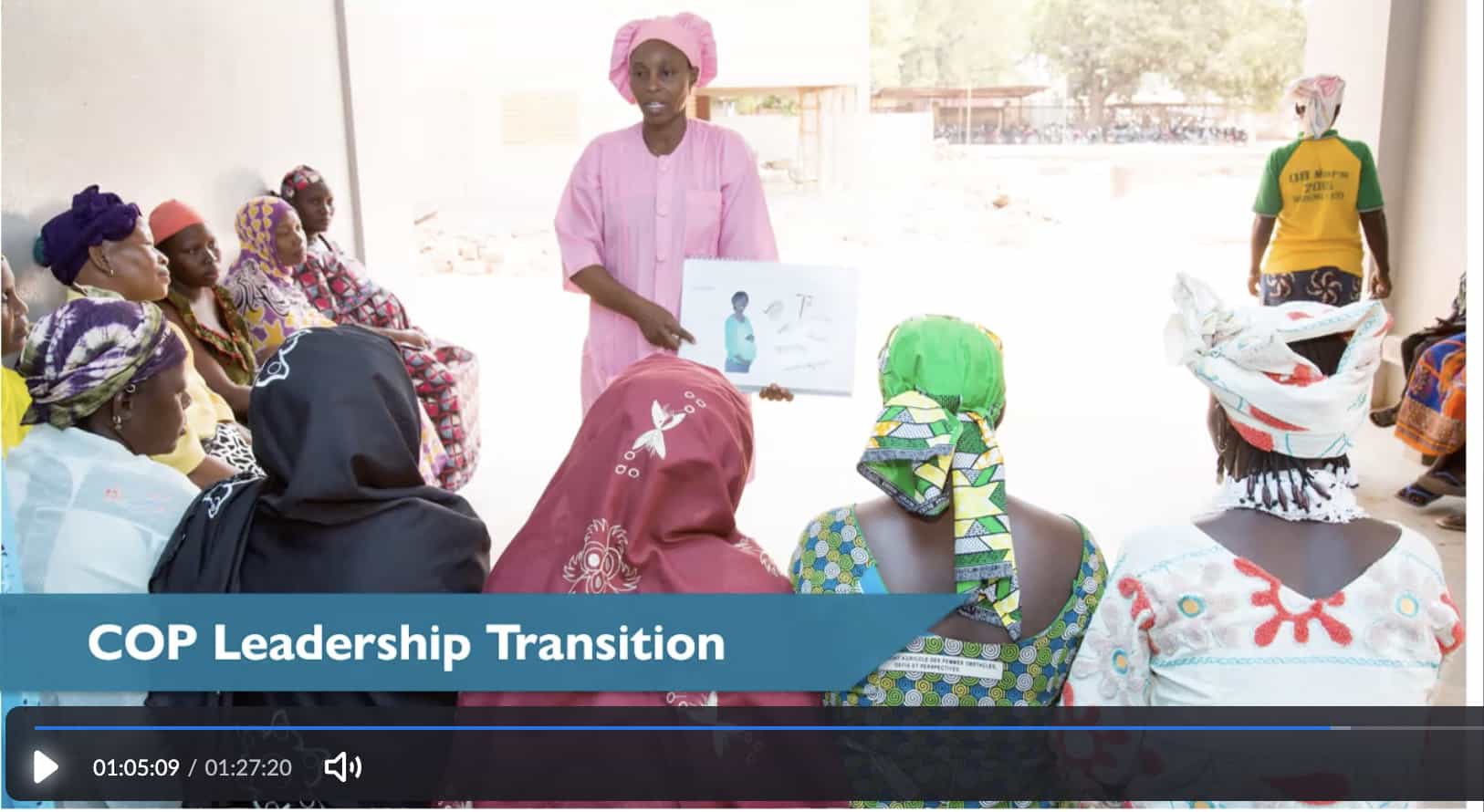Scale-Up Community of Practice in Transition
Looking back, looking ahead, and taking your chance to shape the future

“Projects, positions, and organizations change but the global commitment to scale-up learning has remained strong.” – Rita Badiani, Project Director, Evidence to Action
In nearly eight years at the helm of the Systematic Approaches to Scale-Up Community of Practice (COP), the Evidence to Action (E2A) Project grew the community from several committed partners in 2012 to nearly 1,200 members worldwide today. With sustained engagement from the U.S. Agency for International Development (USAID) and core technical partners (including founding members ExpandNet and the IBP Network), the COP advanced the field of scale-up. Over the years the COP produced webinar series and numerous workshops and developed reports and other products, including an updated bibliography of systematic approaches for scaling up.

With the E2A project ending in March 2021, USAID’s Office of Population and Reproductive Health championed the efficient transfer of the COP’s secretariat role to the Research for Scalable Solutions project (R4S) under FHI 360. This transfer ensures that this platform will endure, supporting collaboration and knowledge exchange on the process of scaling evidence-based practices for family planning. FHI 360 has a long history of leadership in family planning, implementation science, and scaling innovations into standards of practice, so this COP is a natural fit.
Trinity Zan, Research Utilization Lead for R4S, reflected on the convergent missions of R4S and the scale-up COP:
“As an implementation science project, R4S will both produce evidence and ensure it is applied. Our ‘twinned’ research and research utilization mandate is keenly focused on the role of scale-up and evidence gaps related to scale. The overarching goals for R4S and the scale-up COP are perfectly aligned. The R4S consortia is really looking forward to working with everyone in the COP to help expand high-quality, safe, and equitable FP services in low- and middle-income countries.”
Reflecting on the scale-up field
The COP’s September 2020 meeting, the last under E2A direction, engaged the development community’s foremost thinkers and designers to reflect on the field and endeavor of scale-up. The recording of the meeting provides dozens of insights for the future of scale-up.

Highlights from the meeting included:
- A brief history of the scale-up landscape in development by MSI’s Larry Cooley, who, with Johannes Linn of Brookings Institution, co-chairs the cross-sectoral Global Community of Practice on Scaling Development Outcomes, where ExpandNet continues leading the Health Technical Working Group.
- Discussions about a shift in focus—from fidelity to interventions toward fidelity to outcomes— which has led to broad discussion of adaptive management as an essential component of scale-up.
- Emphasis on the importance of documenting throughout the process of scale-up, using tools such as ExpandNet’s Implementation Mapping Tool.
- Increased interest among donors and practitioners alike in the scale-up of programming to change social norms.
- A call for radical collaboration that centers governments as co-designers from the outset.
- A presentation from the Global Financing Facility that emphasized the importance of evidence to help governments determine what should and should not be scaled, and how to increase the availability of information to support decisions related to cost.
Help shape the future of scale-up
These are just a few of the countless topics the COP can continue to explore. R4S is committed to inclusive dialogue, and invites you to help shape the COP’s future—starting with these actions:
- Take this three-minute survey to voice your opinion on topics for future discussions and events, frequency of meetings, and more.
- Join the Systematic Approaches for Scale-Up of FP/RH Best Practices COP on the IBP Xchange, subscribe to the listserv, and invite your colleagues to join us. The COP’s rich library is being transitioned from E2A to the IBP Xchange site. This will be the COP’s community work space to share resources, thoughts, and connection.
The COP conveners look forward to continuing to work together to ensure focus on scaling up effective family planning policies and programs. The COVID-19 pandemic has increased competition for attention and funding across development sectors, but family planning remains a “best bang for your buck” strategy. With the knowledge and sustained commitment within this community, let’s continue to showcase and advocate for the proven ripple effect of family planning benefits to other global goals to improve the health and well-being of all.





